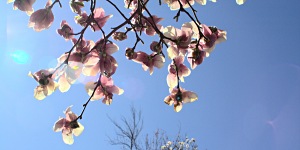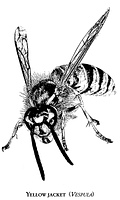Solve Your Yellowjacket Problem During Cold Weather
Wasps, hornets and yellowjackets enjoyed a banner year in 2023. Nearly everyone in Rockland County seems to have come across new nests in unexpected places in the dirt of our yards or hanging from a tree.
Here's some good news: All summer, these stinging insects were gorging themselves on invasive spotted lanternflies. Wasps, hornets and yellowjackets are carnivorous. Starting last spring, millions of these enthusiastic predators were on the job from dawn to dusk seven days a week killing spotted lanternflies, while we were lucky to be able to crush a few dozen of the unwanted pests underfoot while walking the dog.
It is the balance of nature in action; their population boom was fueled by the explosion of the lanternflies. Wasps’ appetite for juicy new prey means that they are valuable allies in our fight to save sugar maple trees and other forest favorites that are under attack.
Here’s the bad news: The walls of our houses are fair game for nesting. Buzzing workers crowding in and out of a small exterior hole in your siding in hot weather mean that you have a colony of unwelcome guests. These invaders can even penetrate indoors. Nobody wants to step out of the shower and meet an angry wasp buzzing around inside the bathroom window! Pest control companies reported long waiting lists to handle the problem all summer.
If you are still waiting for the exterminator, you are in luck because colonies die off in cold weather and the hibernating queen will not re-use the same nest next year. Winter is the only time you can manage a bad infestation yourself. After the hard freeze sets in and all the wasps are dead, carefully seal off every crack and crevice around the nest’s entry with silicone caulk, concrete, or expanding foam. Cover vents and chimneys with mesh screens. Next spring, be vigilant about small nest activity; mix two cups of strong vinegar with two cups of sugar and one cup of water to attract and kill wasps without the use of dangerous chemicals. Large nests are dangerous and should be left to the professionals.
In the unlikely event that you find you are hosting a nest of peaceful, vegetarian honeybees next summer, please call a beekeeper, who will be more than happy to move the colony. Little known fact: Alfred C. Kinsey, who achieved lasting fame as a student of human sexuality, grew up in northern New Jersey and first rose to professional prominence as an entomologist. His collection of 7.5 million gall wasp nests resides in the city in the basement cabinets of the AMNH.


